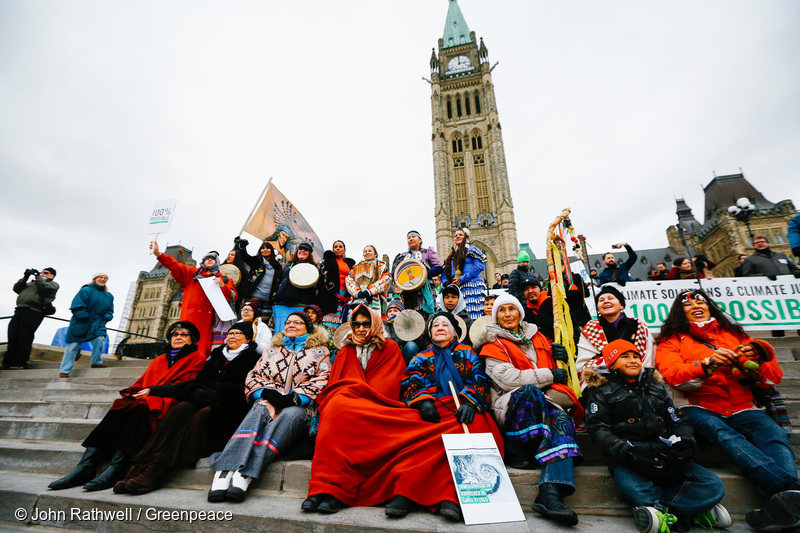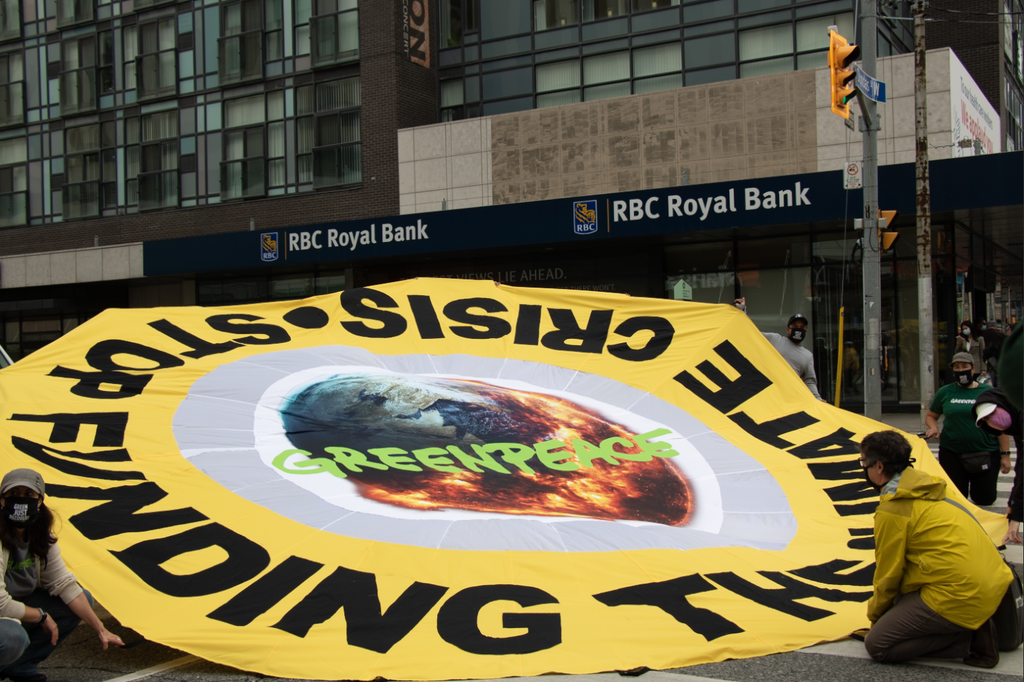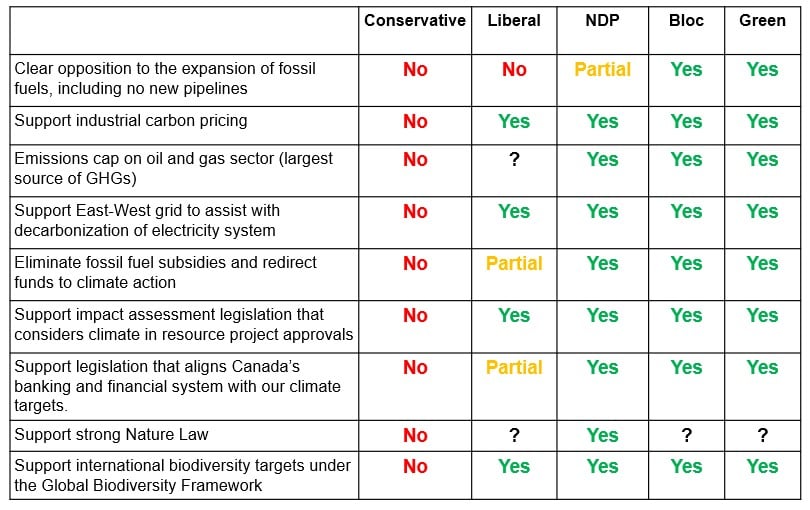Canada has joined the growing ranks of nations promising to end international financing of fossil fuels (though there are some worrisome exceptions). The Financial Post immediately warned that without taxpayer subsidies it would be more expensive for private companies to build new fossil fuel projects which… is the whole point of the exercise.
The decades-long global campaign to end fossil fuel subsidies – where we are literally spending public funds to worsen climate destruction – is beginning to bear fruit. Properly implemented, Friday’s announcement from the Government of Canada is the equivalent of a big, juicy apple (or whatever fruit you prefer)

Earlier this year, Greenpeace Canada and over 100 other organizations called on the federal government to end subsidies to fossil fuel companies. In particular, we noted that with strong implementation by signatories like Canada, the 2021 Glasgow Statement On International Public Support For The Clean Energy Transition has the potential to directly shift at least USD 24 billion a year in influential, government-backed finance out of fossil fuels and into clean energy on an annual basis. Indirectly, it would shift even more by sending a clear signal to other governments and investors.
On Friday, the federal government published Guidelines for Canada’s International Support for the Clean Energy Transition, which outlines how we will implement this promise. The new policy applies across all federal departments, agencies and Crown corporations but will predominantly impact Export Development Canada (EDC), a Crown corporation with a long history of funnelling billions in support to the oil and gas industry. As of January 2023, EDC (and the rest) will have to stop funding (most) fossil fuel projects and redirect those resources to support the clean energy transition.
The big question mark is over the exceptions in the policy for financing fossil gas, fossil hydrogen and carbon capture and storage (CCS) technology. On the one hand, these are allowed, which will blunt the effectiveness of the policy. On the other hand, there are fairly robust conditions that projects must meet, including the requirement that any project receiving support must align with a pathway consistent with limiting global heating to 1.5°C. So if these conditions are applied with integrity, it is unlikely that any fossil fuel project would meet them.
Expect future battles over this, but at least now industry must prove their project is “good” rather than environmentalists trying to prove it’s bad.
In addition, and unlike most of Canada’s peers, the policy leaves the door open for fossil fuel projects on national security grounds, and further detail is needed on how this will be interpreted. In this year’s World Energy Outlook, the International Energy Agency was clear that investments in energy efficiency and renewable energy are the solution to the current energy crisis, not new investments in oil and gas.
This new policy was focused on ending international fossil fuel finance, but most of Canada’s fossil fuel subsidies are for domestic production. Those are supposed to be ended next year, and federal Environment Minister Steven Guilbeault promised it would happen in the first half of the year.
We’ll be watching.

Canada’s banks must be held accountable for their role in violating Indigenous rights and their contribution to climate change.
Take action


